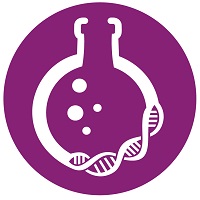Bioanalytics
Non-Specific Binding of Antibodies Induces Immunogenicity via Unintended Immune Activation
Monday, October 21, 2024
3:15 PM - 3:30 PM MT
Location: 150 DEFG

Eiichi Hashimoto, PhD
Scientist
Chugai Pharmaceutical Co., LTD.
Yokohama-shi, Kanagawa, Japan
Rapid Fire Speaker(s)
The formation of anti-drug antibodies (ADAs) against therapeutic antibodies is a critical problem in drug development due to its potential impact on efficacy and safety. Although recent studies suggest that non-specific antibody binding to unintended targets , such as the extracellular matrix (ECM), contributes to their immunogenicity, the mechanism remains unclear.
Here, we demonstrate that therapeutic antibodies with high levels of ECM binding induce activation and enhance antigen presentation in antigen-presenting cells (APCs) in vitro. These antibodies activated CD4+ T cells only in the presence of APCs, indicating that the unintended activation of APCs is involved in the immunogenic response against them. Additionally, abnormal morphological changes were observed in peripheral blood mononuclear cells treated with such antibodies. Thus, we have established a novel method for evaluating immunogenicity based on morphological analysis using fluorescence imaging. Our results suggest that optimizing non-specific binding profiles is an effective strategy for de-immunizing therapeutic antibodies.
Here, we demonstrate that therapeutic antibodies with high levels of ECM binding induce activation and enhance antigen presentation in antigen-presenting cells (APCs) in vitro. These antibodies activated CD4+ T cells only in the presence of APCs, indicating that the unintended activation of APCs is involved in the immunogenic response against them. Additionally, abnormal morphological changes were observed in peripheral blood mononuclear cells treated with such antibodies. Thus, we have established a novel method for evaluating immunogenicity based on morphological analysis using fluorescence imaging. Our results suggest that optimizing non-specific binding profiles is an effective strategy for de-immunizing therapeutic antibodies.
Learning Objectives:
- Upon completion, participant will be able to understand the mechanism of immunogenicity induced by the nonspecific binding of therapeutic antibodies through unintended activation of antigen-presenting cells
- Upon completion, participant will be able to understand the use case of some non-clinical immunoegnicity assessment tools to evaluate the immunogenic potential of therapeutic antibodies
- Upon completion, participant will be able to understand the method of cell morphology-based novel high throughput immunogenicity screening


